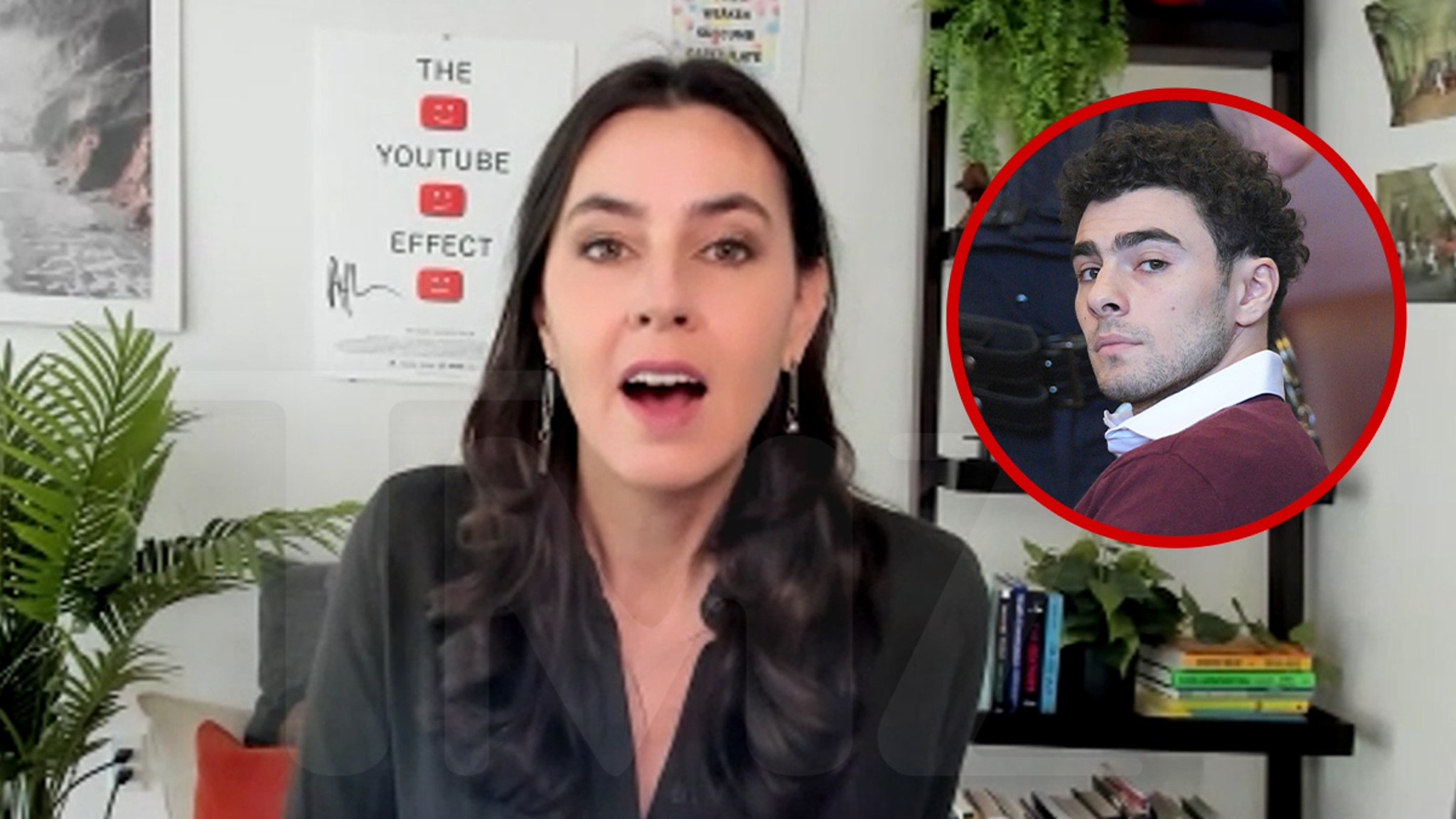Taylor Lorenz Examines Luigi Mangione Manifesto, How It Relates to Trump Bill

Quick Read
**Taylor Lorenz is digging deep into a manifesto penned by Luigi Mangione. The big question? How does Mangione's writing connect to the Trump Bill? Lorenz is exploring the possible links and implications.**
Decoding Luigi Mangione's Manifesto: Taylor Lorenz Connects Dots to Trump's Policies
In a recent exposé, renowned tech and culture journalist Taylor Lorenz delves into the complex and controversial manifesto of Luigi Mangione, a figure who has recently gained notoriety for his fringe political views. Lorenz's analysis goes beyond a simple summary, drawing striking parallels between Mangione's ideology and specific policies championed by former President Donald Trump. This connection has ignited a firestorm of debate, raising questions about the influence of extremist thought on mainstream political discourse.
Unpacking the Mangione Manifesto: A Glimpse into Radical Ideas
Luigi Mangione's manifesto, circulating widely online, presents a series of radical propositions. These ideas, encompassing views on immigration, economics, and social structures, often espouse nationalistic sentiments and a rejection of globalization. Lorenz meticulously dissects the key themes within the manifesto, revealing the underlying philosophies driving Mangione's perspective.
Lorenz highlights several critical points:
* The manifesto advocates for strict border controls and a complete overhaul of immigration policies, echoing Trump's stance on immigration reform.
* Mangione's economic proposals favor protectionist measures and a return to manufacturing within national borders, aligning with Trump's "America First" agenda.
* The manifesto expresses skepticism towards international organizations and agreements, mirroring Trump's withdrawal from various global accords.
Connecting the Threads: Parallels with Trump's Policies
The core of Lorenz's analysis lies in drawing direct links between Mangione's manifesto and specific policies enacted or proposed during Trump's presidency. She argues that while Trump may not have explicitly endorsed Mangione's views, the similarities in their approaches to key issues are undeniable.
Lorenz points to several examples:
* Trump's efforts to build a wall on the U.S.-Mexico border resonate with Mangione's call for impenetrable borders.
* Trump's imposition of tariffs on imported goods aligns with Mangione's protectionist economic agenda.
* Trump's withdrawal from the Paris Agreement on climate change echoes Mangione's skepticism towards international collaborations.
These parallels, according to Lorenz, raise crucial questions about the extent to which extremist ideologies have permeated mainstream political discourse.
Fueling the Debate: Reactions and Repercussions
Lorenz's article has ignited a heated debate across various platforms. Critics argue that she is unfairly associating Trump with extremist views, while supporters praise her for shedding light on the potential influence of fringe ideologies.
The article has prompted responses from:
* Political analysts, who are debating the significance of the connections drawn by Lorenz and their implications for future political discourse.
* Academics, who are studying the manifesto and its potential impact on public opinion.
* Commentators from across the political spectrum, who are offering their perspectives on the validity of Lorenz's claims.
The controversy surrounding Lorenz's analysis underscores the sensitivity surrounding the issue of extremism and its potential influence on political decision-making.
Examining the Broader Implications
Lorenz's investigation extends beyond the immediate connection between Mangione and Trump, prompting a broader examination of the role of extremist ideologies in shaping political discourse. Her work encourages readers to critically evaluate the sources of information they consume and to be wary of the potential for extremist ideas to infiltrate mainstream narratives.
Her analysis highlights the importance of:
* Media literacy, enabling individuals to discern credible information from misinformation.
* Critical thinking, empowering individuals to analyze information objectively and identify biases.
* Open dialogue, fostering constructive conversations about complex issues and promoting understanding across different perspectives.
By shedding light on the potential influence of extremist thought, Lorenz's article serves as a valuable contribution to the ongoing conversation about the state of political discourse and the importance of safeguarding democratic values.
Conclusion: A Call for Vigilance and Critical Engagement
Taylor Lorenz's examination of Luigi Mangione's manifesto and its connections to Trump's policies serves as a stark reminder of the need for vigilance and critical engagement in the face of increasingly polarized political landscapes. By drawing attention to the potential influence of extremist ideologies, Lorenz encourages readers to be active participants in shaping a more informed and inclusive public discourse. The debate sparked by her analysis underscores the importance of holding political leaders accountable for their rhetoric and policies and of ensuring that extremist views do not gain undue influence in the mainstream. As society navigates an era of rapid information dissemination and increasing political fragmentation, Lorenz's work serves as a crucial call to action, urging individuals to engage thoughtfully and critically with the ideas shaping the world around them.






